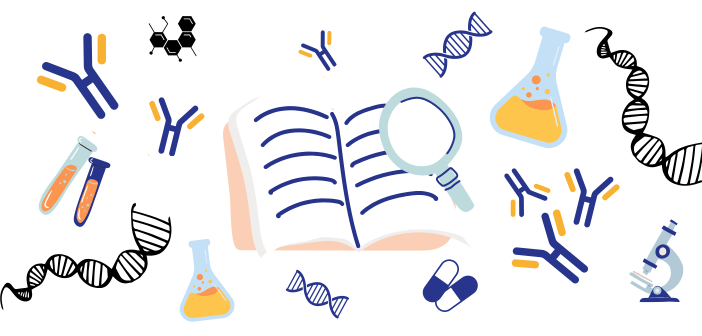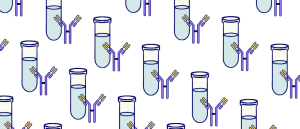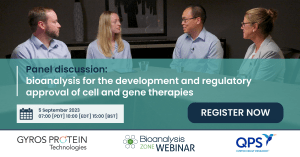2024 White Paper on Recent Issues in Bioanalysis: a three part series

The 18th Workshop on Recent Issues in Bioanalysis (18th WRIB), held from 6−10 May 2024 (TX, USA), gathered over 1100 industry and regulatory professionals to discuss key bioanalytical advancements. Covering mass spectrometry, biomarkers, gene and cell therapies, vaccines, immunogenicity and regulatory updates, the event featured three Main Workshops and seven Specialized Workshops on emerging bioanalytical challenges and best practices. This three-part 2024 White Paper summarizes expert insights, regulatory perspectives and practical recommendations from the conference to enhance scientific excellence, regulatory compliance and innovation in bioanalysis.
Part 1: Mastering mass spectrometry and bioanalytical method validation
Part 1 of the 2024 White Paper on Recent Issues in Bioanalysis covers key advancements and regulatory challenges in mass spectrometry assays, chromatography, sample preparation and bioanalytical method validation (BMV). Topics include ultra-sensitive small molecule detection, hybrid immunoassay-mass spectrometry techniques and emerging regulatory considerations. It also presents insights from major regulatory agencies (FDA, Health Canada, UK MHRA, ANVISA, EMA) on compliance, data integrity and evolving standards.
Highlights:
- Emerging challenges in bioanalysis for novel modalities.
- Advanced strategies for biomarker quantification and hybrid assays.
- Ensuring data integrity, compliance and automation in regulated bioanalysis.
- Regulatory insights from agencies like the FDA, Health Canada, MHRA and ANVISA.
 60-seconds with Francis Dessy & Ivo Sonderegger: Harmonization of vaccine ligand binding assays validation
60-seconds with Francis Dessy & Ivo Sonderegger: Harmonization of vaccine ligand binding assays validation
The publication ‘Harmonization of vaccine ligand binding assays validation‘ gives recommendations on how to qualify and validate ligand binding assays that support the clinical development of vaccines. It also describes the broader context of the global assay life cycle for vaccines.
Part 2: Innovations in biomarkers, companion diagnostics and cell-based assays
The second part of the White Paper explores advanced strategies for biomarker validation, IVD/CDx development, ligand binding assays and cell-based assays. It delves into AI/ML applications in flow cytometry, automation in vaccine biomarkers, and regulatory perspectives on assay validation. This section also highlights how bioanalysis is evolving to support precision medicine and personalized therapies.
Highlights:
- Impact of IVDR changes in the EU and LDT regulations in the US.
- AI/ML applications in flow cytometry and cell-based analysis.
- Advanced strategies for biomarker assay validation and cross-platform integration.
- Regulatory perspectives on clinical vaccine assays and biomarker qualification.
 Panel discussion: bioanalysis for the development and regulatory approval of cell and gene therapies
Panel discussion: bioanalysis for the development and regulatory approval of cell and gene therapies
The wide variety of cell and gene therapies in the bioanalytical space urges a discussion of their regulation and support. Our expert panel dissects current modalities and their unique analytical challenges, the platforms currently being utilized to facilitate cell and gene therapy development and the primary regulatory challenges standing in the way of the approval of such therapies.
Part 3: The future of gene and cell therapy, vaccines and immunogenicity
Focusing on immunogenicity assessment for gene and cell therapies, part 3 addresses innovative bioanalytical technologies, including genomic assays, next-generation sequencing (NGS) and ddPCR applications. It also examines regulatory expectations for immunogenicity risk assessment in novel therapies, bridging preclinical and clinical studies to accelerate vaccine and biotherapeutic development.
Highlights:
- Immunogenicity risk assessments for gene and cell therapies.
- NGS and PCR innovations in regulated environments.
- Biotherapeutic immunogenicity and risk-based mitigation strategies.
- Regulatory updates on immunogenicity, vaccine development and novel therapeutic platforms.
 A collaborative breakthrough in vaccine LBA validation standards
A collaborative breakthrough in vaccine LBA validation standards
“In early 2021, vaccine manufacturers approached WRIB for sponsoring/supporting the authorship and publication of an overarching vaccine assay validation document based on the 2017–2020 discussions and consensus starting from immunogenicity assays first and followed by future papers on molecular and cell-based assay validation.”






